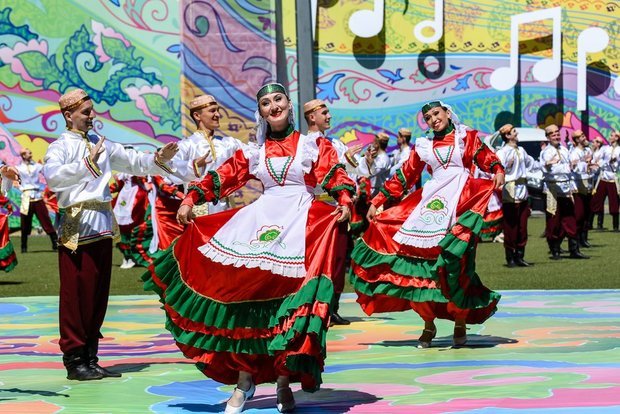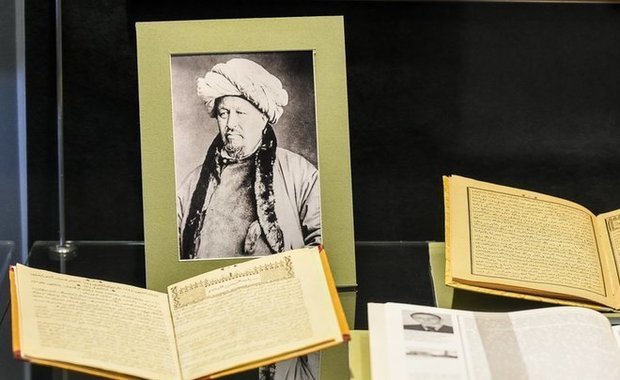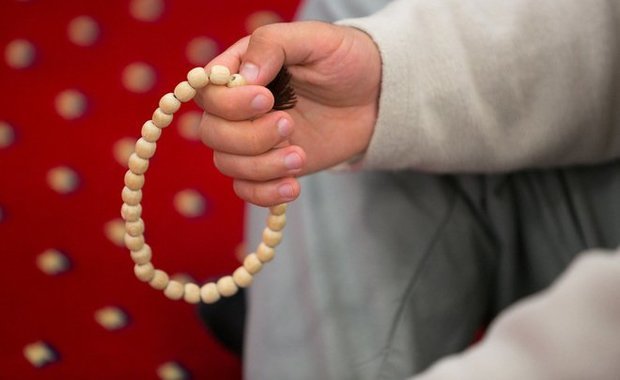Mufti of Tatarstan: ''The concept of 'Islam and the Tatar world' goes into oblivion?''
Kamil Samigullin about how the denial of multiculturalism and religious tolerance leads to a dead-end path of development for Islam
Kamil Samigullin, Chairman of the Muslim Spiritual Board of Tatarstan, in the column written specially for Realnoe Vremya prior to the upcoming all-Russian forum of Tatar religious leaders recalls a document adopted back in 2013. It is about the conceptual foundations of development ''Islam and the Tatar world''. We offer our readers to get acquainted with the thoughts of the mufti.
Islam and the Tatar world… This year marks the 5th year since the adoption of the key, I would even call pivotal, for the entire Tatar world document with the same name — ''Islam and the Tatar world: conceptual foundations of development''. By that time, Kazan had already had the status of the sports capital of Russia, Tatarstan achieved significant success in the industrial and IT sectors, as well as in the field of attracting investments — all this determined priority directions of socio-economic development of the republic. The spiritual life of the Tatar world got its features and vectors of further development thanks to the concept ''Islam and the Tatar world''.
Can we talk today about intermediate results of the implementation of this concept? No, probably not — it's too soon. But it wouldn't hurt to remind the Tatar community before the upcoming forum of Tatar religious leaders about our spiritual guidelines — sometimes it seems that they are, unfortunately, forgotten.
So, in May 2013, the IV All-Russian Forum of Tatar Religious Leaders was held in Kazan. According to its results, the concept of ''Islam and the Tatar world'' was adopted, developed by the Muslim Spiritual Board of the Republic of Tatarstan in cooperation with the Russian Islamic Institute and the Executive Committee of the World Congress of the Tatars. This important document reflects fundamental theological and social issues. Much attention is paid to the preservation and promotion of traditional Muslim religious values, preservation of spiritual, moral and cultural traditions of the Tatar people, heritage of great scientists and religious figures of the past. In other words, the programme, in fact, determines spiritual guidelines of the entire Tatar people.

From year to year, the same question is raised among Muslims: is it right to celebrate Mawlid or Sabantuy and observe national traditions, some of which are not directly related to Islam
I can definitely say that the Muslim Spiritual Board of the Republic of Tatarstan has carried out its activities in recent years, especially in the sphere of relations with the state and secular society, remaining true to the strategies outlined in this document. The strategies, worked out by theologians, scientists, public and political figures, national and spiritual leaders. And I am deeply surprised when today, here and there, disputes arise or the expediency of certain actions of our muftiat is questioned — and I want to ask: haven't you opened the concept of ''Islam and the Tatar world''? In my article, I will present for the convenience of readers brief excerpts from this voluminous document — it's not that they are not relevant today, but, perhaps, they even will remain classic at all times!
''Modern Muslim Tatars, despite years of persecution of the religion and then the spread of so-called 'pure' Islam, continue to be maturidites and understand that their ancestors were on the right from the point of view of Sunni Islam way, they consciously chose hanafism and maturidism,'' the document says. As you can see, it is not about any other dissents in matters of religion among the Tatar community. Hanafism, like no other madhhab, most fully corresponds to Russian realities, as it was born in the conditions of multiconfessionality. There have been much talks about threats of persecution of people for their beliefs. So the concept, as if anticipating, clearly states: ''You cannot condemn people for their beliefs until these beliefs do not harm society and threaten its existence.'' Although the document concludes: ''In order to avoid misunderstandings and troubles among the Muslim Tatars, it is necessary to adhere to the Hanafi madhhab. At the same time, it should be assumed that the observance of one mazhab in matters of rituals will contribute to the unity of the Tatar Muslims and symbolize their unity.''
From year to year, the same question is raised among Muslims: is it right to celebrate Mawlid or Sabantuy and observe national traditions, some of which are not directly related to Islam. This concept states:
''Pre-Islamic traditions that do not contradict the sharia, performed among the Tatars after the adoption of Islam, according to the Hanafi mazhab (law school — editor's note) are allowed as belonging to the category of customary law (goref-gadat). Traditions and customs that do not contradict the religion and sense are correct in the sharia and approved. The Quran itself confirms this source of law. Muslim rites and certain religious acts, which have a basis in the sharia, cannot be innovations in the religion (bidgat). Therefore, from the point of view of wisdom in dagvat (call), it is impermissible to call innovations and to forbid Muslims to celebrate Mawlid — the birthday of the Prophet (S.A.W.), read certain ayats and dua (doga) for the repose of the soul and forgiveness of the dead, use beads, holding Quranic Majlis (ashlar), wakes on certain days, visits (ziyarat) of graves of the righteous and other rites. It is believed that during such events, Allah gives special favour to his servants. The Muslims during this time remember the mercy God gave the people sending Prophet Muhammad (S.A.W.).''

The document also touches upon the issue of Sufism development, which is often compared with a sect and believed that it has no place in Tatarstan. Meanwhile, the traditional Sufi school has a great potential to work against extremism and radicalism, strengthen the ideas of humanism and strengthen intercultural dialogue. Sufism is one of the integral parts of traditional Russian Islam. The rich traditions of Sufism are typical for the Muslim peoples of the Volga region and the North Caucasus. Zaynulla ishan Rasulev, imam Shamil, Shihabetdin Marjani, Tajuddin Yalchygol, Mahmud afandi, Gabdrakhim Utyz Imyani, Sayfulla kady, Galimjan Barudi, Said afandi, Kursavi, Kunta haji — these are only some bright stars from the whole galaxy of great scientists of Russian Sufism! Representatives of Russian Sufism have always been the most progressive and patriotic part of the Muslim community. All the traditional Tatar theology is somehow connected with Sufi peace-loving traditions. I believe that Sufism is a real alternative for young people because the traditions of Sufism call for tolerance, humility and respect for each other, and this is one of the most important elements of human morality and necessary source of spiritual discipline and virtue. ''Sufism and its traditions came to the Tatar lands simultaneously with the spread of Islam,'' the document emphasizes.
The concept fully reflects the Islamic approach to the national question. The basic principle here is ''the concept of divine predestination'': everything created by Allah cannot be changed by human efforts, and therefore, the unification of people into ''tribes and nations'' will remain eternal and unchanged. ''In Tatar society, national ideas quickly het united with Islam and help strengthen the position of religion and, at the same time, strengthen the immunity of national culture.'' That is why the Republic of Tatarstan took on the mission of preserving the Tatar national identity. Great Marjani could not be mistaken: ''Islam will be preserved thanks to national clothing, national traditions and national language.'' As you can see, the arguments of those who believe that there are no nations in Islam look groundless.
Before that, there was no such document that somehow regulated and determined the issues of state-confessional and religious-secular relations so deeply and comprehensively. But the concept of ''Islam and the Tatar world'' clearly states: ''A secular state must be distinguished from an atheist state that denies religion in principle. A secular state can cooperate with various religious communities and help believers.'' Is there a more appropriate type of state in such multinational and multi-confessional state and republic?! The secularism of public space makes life together fair and comfortable for all citizens of our country.
The Quran gives us a principle, according to which the believers must obey God, the Messenger, and the people of command'' (4:59), that is, the holders of power.

The denial of multiculturalism and religious tolerance, rejection of cultural diversity as a natural state of modern society — a dead-end path for the development of Islam in Russia. ''Muslims should make every effort to get involved in public life,'' the concept concludes. ''The modern multicultural world is a situation of competing ideologies, which can be defeated not by brute force of aggression or, on the contrary, full isolationism, but with the help of adequate humane ideology.''
It is exactly the kind of competitive, popular and successful ideology that is developed by the Muslim Spiritual Board of the Republic of Tatarstan. Taking into account that on the territory of the whole Volga-Ural region of Russia representatives of the Muslim clergy are Tatar religious figures, the use of the concept of ''Islam and the Tatar world'' in their work would be appropriate for them. Moreover, President of Russia Vladimir Putin defined the restoration of theological traditions and heritage of Russian Muslims, return of the authority of traditional for us Islam, revival of national Islamic theological school on the basis of traditional Islam, expressed by Hanafi madhab and maturidite creed as the primary tasks to ensure the ''sovereignty of the Russian spiritual space''. That is exactly what is pointed out in this important document for all the Tatar people.